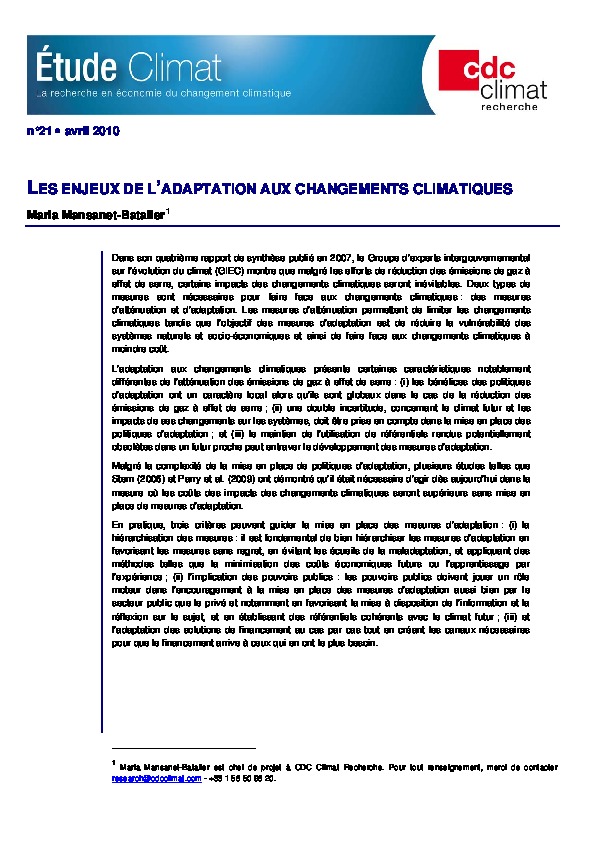The challenges of adapting to climate change
By Maria MANSANET-BATALLER
In its Fourth Synthesis Report published in 2007, the Intergovernmental Panel on Climate Change (IPCC) demonstrated that in spite of efforts to reduce greenhouse gas emissions, certain impacts of climate change will be inevitable. Two types of measures are necessary to confront climate change: mitigation measures and adaptation measures. Mitigation measures will make it possible to limit climate change, while the objective of adaptation measures is to reduce the vulnerability of natural and socio-economic systems and thus to react to climate change at least cost.
The adaptation to climate change exhibits certain characteristics that differ significantly from the mitigation of greenhouse gas emissions: (i) the benefits of adaptation policies are of a local nature, while the benefits in the case of the reduction of greenhouse gas emissions are global; (ii) a dual uncertainty concerning the future climate and the impacts of climate change on systems must be taken into consideration in the implementation of adaptation policies; and (iii) continued utilization of frames of reference that may be rendered obsolete in the near future can hinder the development of adaptation measures.
